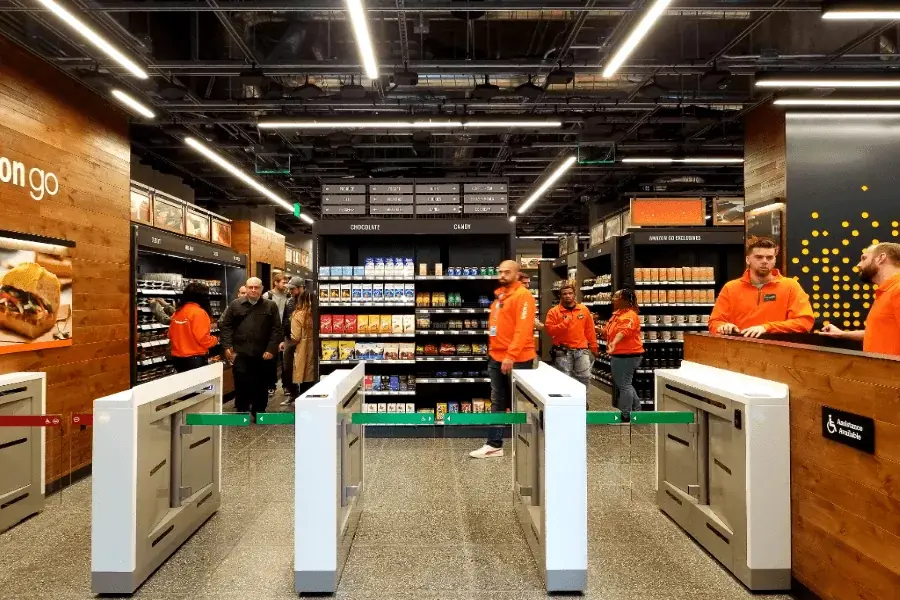IoT, the Internet of Things - a short take
Take sensors, you know, temperature sensors (like in your fridge) or CO2 sensors (like that one in the bedroom). Get them to “talk” over WiFi… no,...
![]() Facilities Management
Facilities Management
Manage maintenance requests & streamline operations
CMMS
CAFM
EHS
Regulatory Compliance
PPM
EAM
Operations Management
Transportation Management
![]() Food Safety
Food Safety
Prove compliance and ensure standards are up to customer expectations
![]() Retail Task Management
Retail Task Management
Enable your teams to focus on delivering quality and achieve their goals.
Task Creation & Automated Follow-up
Unified Reporting and Data Analysis
Regulatory and Audit Monitoring
Full visibility of every task
IoT
Take action on your data to get ahead
Integrations
Bring mpro5 into your other tools
Automated Workflows
Make your work effortless with automated workflows
Managed Service
Supporting your operations, every step of the way
NEWS & INSIGHTS
Blogs & news
NEWS & INSIGHTS
GET IN TOUCH
GET IN TOUCH
3 min read
 Sam Roberts
Feb 17, 2022 2:00:00 AM
Sam Roberts
Feb 17, 2022 2:00:00 AM
Unless you’ve been living under a rock for the past few years, you’ll have heard about remote monitoring, also known as the Internet of Things (IoT), but you might be wondering “What can it do for me?” So, for starters, here are four ways this technology, coupled with a smart digital solution to make sense of the data, can improve food safety, increase efficiency, enhance your customer experience and boost sales.
Before we get into the meat of the article, let’s recap on what remote monitoring means. Simply put, these are remote sensors that can be connected via the internet to a network that talks to you through a digital platform. In the tech world, this is known as the Internet of Things (IoT).
These sensors can measure anything from the power draw of a coffee machine to the level of lighting in a room. If you would like to know more about the basics, you can download our guide to IoT.
Nothing is more important than food safety but if your teams are still using the humble thermometer to manually monitor fridge temperatures they’re wasting time worth potentially millions of pounds a year. Just do the maths (or don’t – I’m going to tell you anyway). A manual temperature check takes 20 to 30 minutes of a store manager’s time twice daily. Multiply this by, say, 850 stores and you’ve quickly racked up labour costs of £2.5m annually. Time that could be spent more profitably serving customers or upselling.
In contrast, if your fridges are fitted with IoT sensors they’ll not only track fridge temperatures continuously, but also alert you immediately if corrective action is needed. This can prevent food perishing, especially when a power or equipment failure occurs out of hours.
It also provides the assurance that temperature checks and records are being logged at the correct time - rather than relying on an employee’s guestimate once a busy period has passed - with a verifiable audit trail.
This matters because if temperature checks aren’t performed regularly because staff are simply too busy, stores are putting customers at risk of food poisoning (or worse) and leaving your business vulnerable to compensation claims and reputational damage.
When IoT is combined with a smart platform like mpro5, it enables you to spot patterns and identify root causes. For instance, if your fridge temperatures typically rise around lunchtime in city centre locations, this could be because team members are simply too busy to shut the door fully between each customer.
If you notice fridge temperatures rising on the same day each week, this might coincide with the store’s regular food delivery when the door is left open longer than usual to unload and restock.
Or, alternatively, it might be a valuable early warning sign that your fridge is about to go on the blink. Which brings me neatly onto the subject of maintenance.
You don’t need me to point out there are lots of expensive, intensively-used assets in a coffee shop, from fridges to dishwashers and coffee machines, without which the store would grind to a halt (pun intended).
Installing IoT sensors that produce data for analysis identifying when equipment typically breaks down enables you to implement a system of planned preventative maintenance. In other words, instead of waiting for the coffee machine to splutter to a standstill, leaving you with only a few paninis to sell, you can give it some TLC before it reaches that stage and prevent costly downtime.
Wouldn’t it be a better use of your employees’ time if they cleaned store toilets when they actually needed attention, rather than blindly following a pre-set schedule?
IoT sensors fitted on toilet doors make that possible by counting visitors. So, instead of cleaning and restocking toilets after a quiet morning when only a handful of shoppers have wandered in, staff can be more profitably employed selling coffee and cake. Conversely, additional staff will need to be deployed to cleaning duties during a busy match day afternoon when the store is mobbed and toilets are likely to be in sore need of attention.
Studies show that queue lengths, background noise levels, temperature and air quality in a coffee shop directly influence people’s behaviour. This may seem obvious but if customers are uncomfortable they won’t stay. Worse still, they will spend on average £4 an hour less while in-store. Get the store environment right and customers will stay longer and spend more.
Digital platforms like mpro5 help coffee shops do that by counting visitor footfall, monitoring environmental factors and alerting stores when they need to take action. Armed with useable information, stores can turn up the air-conditioning, clean the toilets or divert staff from routine cleaning to serving customers and preventing queues forming.
“It’s not about proving the concept of IoT anymore, but proving its value”
In conclusion, it’s not about proving the concept of IoT anymore, but proving its value. In isolation, all that IoT sensors will give you are daunting volumes of raw data. It’s only when you combine this with a smart digital platform such as mpro5 that you can understand what the data is telling you and start getting value from your IoT investment.
Take sensors, you know, temperature sensors (like in your fridge) or CO2 sensors (like that one in the bedroom). Get them to “talk” over WiFi… no,...
While it may be true in certain scenarios, the stakes are much higher when it comes to the food industry. Hidden behaviors and data pose not only a...

Technological advancements are continuing to transform the retail industry, with the Internet of Things (IoT) leading the charge. Research shows that...